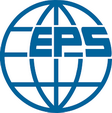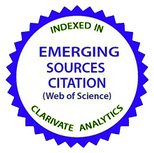Synthesis and Electrochemical Properties of Nanocrystalline Nickel Molybdate
DOI:
https://doi.org/10.15330/pcss.22.1.123-131Keywords:
nickel molybdate, hydrate, cyclic voltammogram, specific capacitance, сoulombic efficiency, activated carbon, hybrid supercapacitorAbstract
We have obtained nanocrystalline hydrate and alpha phase of nickel molybdate by a hydrothermal technique. On the basis of the obtained cyclic voltammetry data, we have evaluated the contribution of faradaic and non-faradaic processes to the total capacitance of molybdates under study. It was found that the specific capacitance of hydrate NiMoO4·H2O is 621 F/g at a scan rate of 1 mV / s and the specific capacitance of the α-NiMoO4 is 281 F/g. Cathodes for hybrid supercapacitors were formed on the basis of the obtained nickel molybdates. As a result of electrochemical studies, it was found that the specific capacitance of hybrid supercapacitor based on NiMoO4·H2O/C was 256 F/g at the current of 0.2 A/g, while the specific energy was 80 W h/kg and specific power – 304 W/kg and these results are higher below in the α-NiMoO4 /C-based hybrid supercapacitor.
References
[2] R.N. Singh, J.P. Singh, A. Singh, Int. J. Hydrogen Energy 33(16), 4260 (2008) (https://doi.org/10.1016/j.ijhydene.2008.06.008).
[3] K. Eda, Y. Kato, Y. Ohshiro, T. Sugitani, & M. S. Whittingham, Journal of Solid State Chemistry 183(6), 1334 (2010) (https://doi.org/10.1016/j.jssc.2010.04.009).
[4] J.A. Rodriguez, S. Chaturvedi, J.C. Hanson, A. Albornoz, J.L. Brito, J. Phys. Chem. B 102(8), 1347 (1998) (https://doi.org/10.1021/jp972137q).
[5] B. Senthilkumar, R.K. Selvan, Journal of colloid and interface science 426, 280 (2014) (https://doi.org/10.1016/j.jcis.2014.04.010).
[6] O.M. Popovych, I.M. Budzulyak, V.O. Kotsyubynsky, O.V. Popovych, B.I. Rachiy, R.V. Ilnytskyi, L.S. Yablon, Physics and Chemistry of Solid State 21(4), 650 (2020). (https://doi.org/10.15330/pcss.21.4.650-659).
[7] B.I. Rachiy, I.M. Budzulyak, V.M. Vashchynsky, N.Y. Ivanichok, M.O. Nykoliuk, Nanoscale Research Letters 11(1), 18 (2016) (https://doi.org/10.1186/s11671-016-1241-z).
[8] G.Z. Chen, International Materials Reviews 62(4), 173 (2017) (https://doi.org/10.1080/09506608.2016.1240914).
[9] S.W. Zhang, B.S. Yin, C. Liu, Z.B. Wang, & D.M. Gu, Applied Surface Science 458, 478 (2018) (https://doi.org/10.1016/j.apsusc.2018.07.110).
[10] J. Wang, J. Polleux, J. Lim, B. Dunn, J. Phys. Chem. C. 111(40), 14925 (2007) (https://doi.org/10.1021/jp074464w).
[11] V. Augustyn, P. Simon, B. Dunn, Energ Environ. Sci. 7(5) 1597 (2014) (https://doi.org/10.1039/C3EE44164D).
[12] L.Q. Mai, F. Yang, Y.L. Zhao, X. Xu, L. Xu, Y.Z. Luo, Nat. Commun. 2, 381 (2011) (https://doi.org/10.1038/ncomms1387).
[13] I.M. Budzulyak, O.M. Khemii, O.V. Morushko, D.I. Popovych, Yu. Starchuk, L.S. Yablon, Nanosistemi, Nanomateriali, Nanotehnologii 17(4), 0689 (2019) (https://www.imp.kiev.ua/nanosys/media/pdf/2019/4/nano_vol17_iss4_p0689p0700_2019.pdf).
[14] O.M. Hemiy, L.S. Yablon, I.M. Budzulyak, S.I. Budzulyak, O.V. Morushko, A.I. Kachmar, J. Nano- Electron. Phys. 8 (4), 04074 (2016) (https://doi.org/10.21272/jnep.8(4(2)).04074).
[15] R. Ranjusha, S. Ramakrishna, A.S. Nair; P. Anjali, S. Vineeth, T.S. Sonia, B N. Sivakumar, K.R.V. Subramanian, S.V. Nair, A. Balakrishnan, RSC Adv. 3, 17492 (2013) (https://doi.org/10.1039/C3RA41992D).









